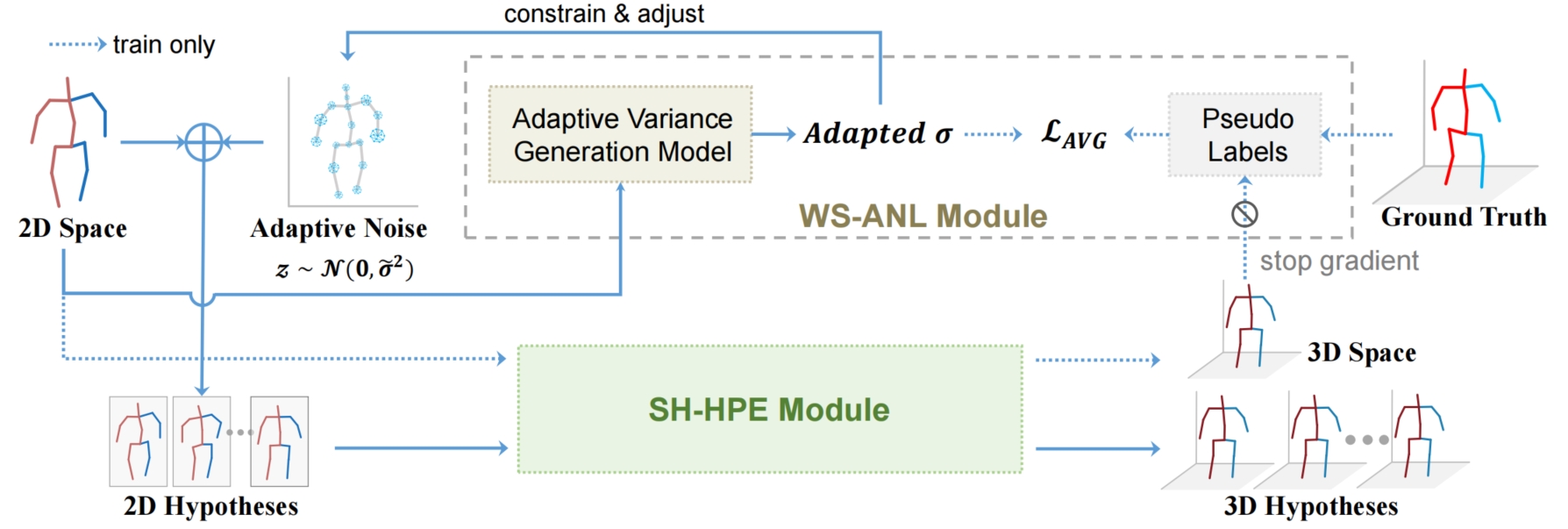Our proposed architecture consists of two main modules:
a) Weakly Supervised Adaptive Noise Learning Module(WS-ANL): completes weakly supervised training of Adaptive Variance Generation Module;
b) Single-Hypothesis Human Pose Estimation Module (SH-HPE): superimpose adaptive noise to the original 2D pose to generate multiple 2D hypotheses; map a single 2D pose to a 3D pose by an SH-HPE model (such as HTNet).
Our work is tested on Ubuntu 22 with Pytorch 1.12 and Python 3.7.
pip install -r requirements.txt
Please download the dataset from Human3.6M and refer to VideoPose3D to set up the Human3.6M dataset ('./dataset' directory). The 2D pose in the MPI-INF-3DHP dataset was extracted using YOLOv3 and HRNet.
${POSE_ROOT}/
|-- dataset
| |-- data_3d_h36m.npz
| |-- data_3d_3dhp.npz
| |-- data_2d_h36m_gt.npz
| |-- data_2d_h36m_cpn_ft_h36m_dbb.npz
| |-- data_2d_3dhp_gt.npz
| |-- data_2d_3dhp_hrnet_coco.npz
The pre-trained models can be downloaded from Google Drive. Put ckpt in the project root directory.
# Human3.6M
python main.py --shhpe_model "htnet" --sample_nums 200 --mutilhyp_test
# MPI-INF-3DHP
python main.py --shhpe_model "htnet" --sample_nums 200 --mutilhyp_test --dataset '3dhp' -k 'hrnet_coco'
To train AVG model on Human3.6M:
python main.py --shhpe_model "htnet" --train
If you find our work useful in your research, please consider citing:
@misc{zeng2024probablistic,
title={Probablistic Restoration with Adaptive Noise Sampling for 3D Human Pose Estimation},
author={Xianzhou Zeng and Hao Qin and Ming Kong and Luyuan Chen and Qiang Zhu},
year={2024},
eprint={2405.02114},
archivePrefix={arXiv},
primaryClass={cs.CV}
}
Our code is extended from the following repositories. We thank the authors for releasing the codes.
